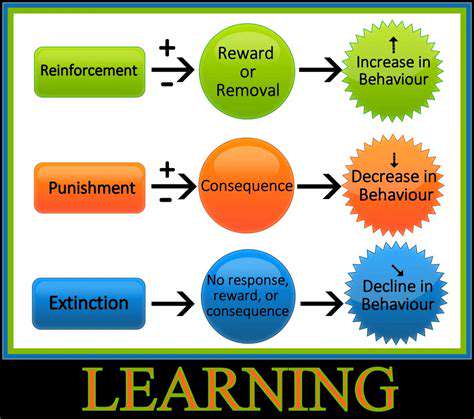Free Study Habit Apps for Elementary Students
Building Time Management and Organization Skills

Understanding Time Management
Effective time management isn't about squeezing more into your day, but rather about prioritizing tasks and allocating your time strategically. This means recognizing your peak productivity times and scheduling demanding tasks accordingly. Understanding your personal work style and identifying potential time-wasting activities are crucial steps in developing a robust time management strategy.
It's a dynamic process that involves continuous assessment and refinement. What works for one person might not work for another, so it's essential to experiment with different techniques and find what resonates best with your individual needs and preferences. Regular self-reflection on your time allocation is key to improving efficiency and achieving your goals.
Setting Realistic Goals
Defining clear, measurable, achievable, relevant, and time-bound (SMART) goals is fundamental to effective time management. These goals provide direction and purpose, helping you focus your efforts and avoid getting sidetracked by less important tasks.
Breaking down large projects into smaller, manageable tasks makes them less daunting and more achievable. This approach promotes a sense of accomplishment as you complete each step, motivating you to continue working towards the larger objective.
Prioritizing Tasks
Prioritizing tasks is essential for maximizing productivity. Identifying tasks based on urgency and importance allows you to focus on high-priority items first, ensuring that critical deadlines are met.
Organizing Your Workspace
A clutter-free workspace contributes significantly to a clear and focused mind. A well-organized workspace promotes efficiency and reduces the time wasted searching for materials or documents. This physical organization directly impacts mental clarity and focus.
Consider implementing organizational systems such as color-coding, filing systems, or dedicated storage spaces for different types of materials. This will streamline your workflow and contribute to a more productive work environment.
Utilizing Time Management Tools
Leveraging time management tools, such as calendars, to-do lists, and project management software, can significantly enhance your efficiency. These tools help you schedule appointments, track deadlines, and manage tasks in a structured manner.
Utilizing these tools allows you to visualize your schedule and identify potential time conflicts or bottlenecks. They provide a clear overview of your commitments, helping you to adjust your schedule and prioritize tasks more effectively.
Overcoming Procrastination
Identifying the root causes of procrastination can be a crucial step in overcoming this common time management challenge. Understanding your personal triggers and developing strategies to address them is key to breaking the cycle of procrastination.
Time management techniques like the Pomodoro Technique or the Eisenhower Matrix can be helpful in combating procrastination. These methods provide structured approaches to task completion and help you break down large tasks into smaller, more manageable segments. This can make the tasks less overwhelming and easier to tackle, ultimately decreasing the likelihood of procrastination.
Read more about Free Study Habit Apps for Elementary Students
Hot Recommendations
- Free Study Habit Apps for Elementary Students
- Special Needs Education Tips for Busy Parents
- How to Support Special Needs Children with Tailored Educational Strategies
- Practical Guide to Equal Parenting Roles
- Practical Tips for Enhancing Kids’ Resilience
- How to Balance Education and Companionship for Kids with ADHD
- Practical Money Management for Young Minds
- Best Study Schedule Tips for Busy Students
- Top Tips for Raising Financially Savvy Children
- Practical Special Needs Education Techniques 2025











